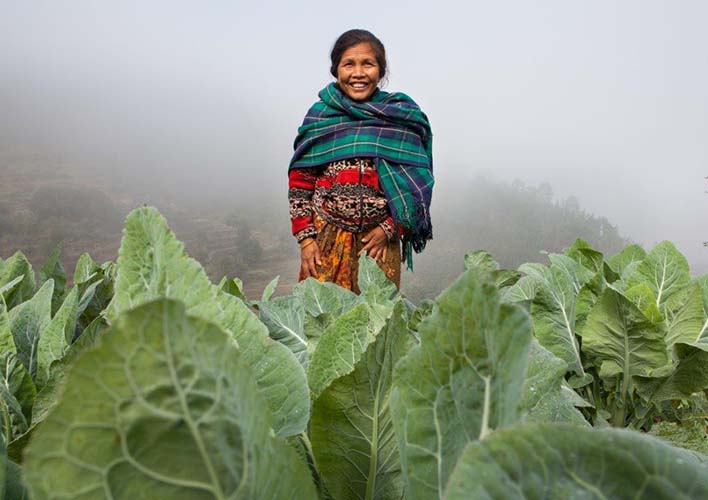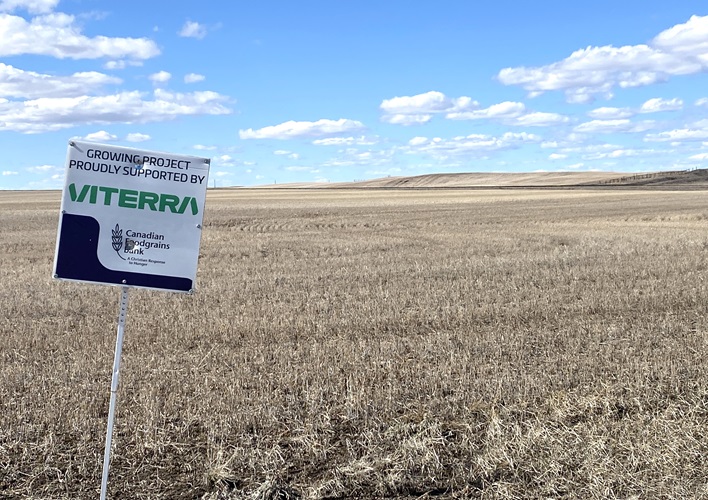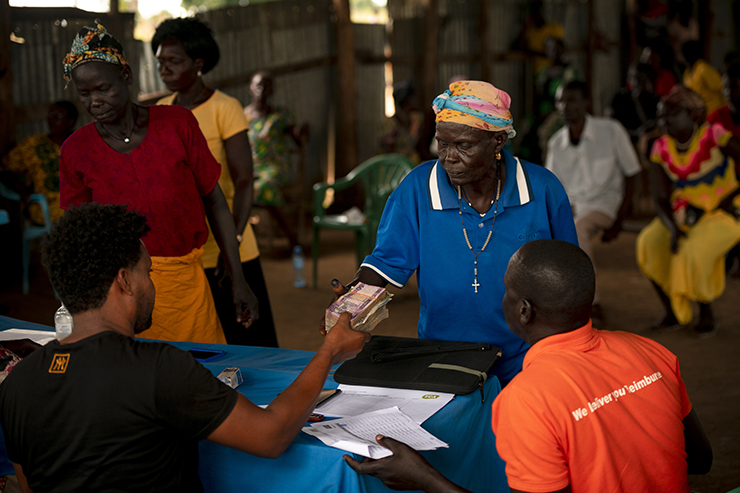Support for agriculture in developing countries can reduce hunger, empower women, and build climate resilience. Inclusive and resilient agriculture systems will help the world to build back better from the COVID pandemic, write Virginie Levasseur and Paul Hagerman. (Photo: Matthew Sawatzky/MCC)
This story was originally published June 17, 2020 in the Hill Times.
Global hunger has been rising since 2015, and food producers are hardest hit. Erratic weather is making it harder to produce food. Gender inequality holds back women, who make up a large percentage of farmers in developing countries. And now Covid-19 is impacting producers and consumers alike.
Canada has taken bold actions on the global stage, with a feminist foreign policy and strong support for climate resilience. The next step is to scale up support for agricultural development.
A new report from a Canadian coalition of NGOs demonstrates that support for agriculture in developing countries can reduce hunger, empower women and build climate resilience. Inclusive and resilient agriculture systems will help the world to build back better from the Covid epidemic.
While food systems play a key role in the livelihoods of many of the most vulnerable communities, these same communities are among the most food insecure.
The report, from the Food Security Policy Group (FSPG), documents a sharp decline in Canada’s support for agricultural development in the past four years, even as global hunger was on the rise. Through analysis of six projects in West Africa, implemented by Canadian NGOs and funded by Global Affairs Canada, the report shows that appropriate investments in agriculture can achieve many of the goals that Canada has already prioritized in the Feminist International Assistance Policy.
Agriculture and development objectives
In developing countries, most rural people earn their livelihoods in agriculture and food systems. They work at every point along the value chain: caring for crops and livestock, working as labourers, processing and transporting food, and selling food in the marketplace. While food systems play a key role in the livelihoods of many of the most vulnerable communities, these same communities are among the most food insecure.
Aid to agriculture is falling
Despite agriculture’s potential, Canada’s performance in providing aid to the sector is dropping, as the FSPG study reports. While Canada has committed to agriculture and food security in the past, notably during the global food price crisis of 2008, its commitment has steadily dropped since. In the most recent four-year period, aid to agriculture fell by 24 per cent.
Canadian aid to agriculture improves equality, resilience and nutrition
The six projects featured in the study show that when women gain access to resources — good land, finances, livestock, inputs, equipment, innovations, information, markets, training — they flourish. Gender transformation comes about through good project design; the engagement of men and boys, alongside women and girls, in transforming social norms; and the inclusion of broad partnerships between government, extension services, local NGOs, research, and the private sector.
The projects also documented improvements in family income, as families earned more money from more diverse livelihood activities and had greater year-round food security. The increase in income, as well as more diverse production from their own farms, contributed to improved family nutrition.
Participants in the projects not only improved their understanding of climate risks, they also adopted new practices to boost their resilience in the face of these risks.
Beyond a crisis
In April, the World Food Programme warned that Covid-19 could double the number of people at risk of starvation in 2020. As emergency and longer-term food and agriculture initiatives are rolled out, it is important that Canada find ways to build back better systems in developing countries — ones that address climate change, gender equality, and food needs of the most vulnerable people on earth.
As we prepare for an uncertain future, agriculture will continue to play a key role in ensuring healthy, equitable, and sustainable communities, particularly as climate change continues to exacerbate the food insecurity faced by rural communities.
Aid for agriculture
The need for strong, inclusive and resilient agriculture systems is pressing. Canada has a chance to prove itself a leader with a strong focus on agriculture within the Feminist International Assistance Policy. As the world recovers from Covid-19, Canada should increase its aid budget, with a focus on inclusive and resilient agriculture systems.
Virginie Levasseur is Africa program director for at SOCODEVI. Paul Hagerman is director of public policy at Canadian Foodgrains Bank. Together they co-chair the Food Security Policy Group.
To read the full reports of the FSPG research project, please visit ccic.ca/leaders-in-the-field.




